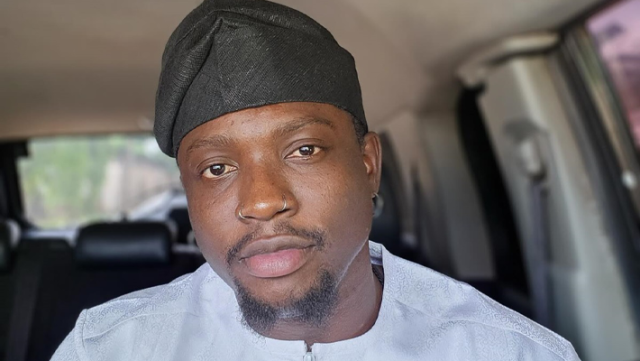The minority group in the House of Representatives has urged the Economic and Financial Crimes Commission (EFCC) to either release Martins Otse commonly referred to as Very Dark Man (VDM) or bring him to court promptly.
In a statement released on Monday, Minority Leader Rep. Kingsley Chinda (PDP–Rivers) condemned Otse's arrest, describing him as a well-known social media influencer and human rights advocate.
“As the opposition's voice in the National Assembly, the Minority Caucus demands the immediate release of Mr. Otse or his arraignment in court in accordance with the law,” Chinda stated.
“Unjust arrests and extended detentions of individuals for expressing dissenting or unpopular opinions have no place in a democratic system.”
He emphasized that liberty, due process, and respect for constitutional rights are foundational principles of Nigeria.
“We will not passively accept state agencies misusing their authority to silence those who challenge the status quo,” he added.
VDM's arrest was widely reported on social media on Friday, allegedly occurring at a location of one of the new generation banks.
Before his arrest, he had shared a video accusing the bank of unauthorized withdrawals from his mother’s account, supposedly linked to a loan taken without her consent.
His arrest reportedly took place during a visit to the bank to address the issue and retrieve the withdrawn funds.
Chinda voiced concern over what he characterized as a disturbing trend of law enforcement agencies arbitrarily exercising their powers against citizens exercising their right to free speech.
He cautioned that such actions pose a threat to Nigeria’s democracy, diminish public trust in the rule of law, and undermine accountability and transparency principles.
“The arrest of Otse, which allegedly took place without a warrant, directly violates the 1999 Constitution, which secures the liberty of citizens unless due process is followed,” he pointed out.
He referenced Sections 35(1) and 35(3) of the Constitution, which mandate that any arrested individual must be promptly informed of the reasons and any charges against them.
“The EFCC, like all government agencies, is obligated to adhere to these constitutional mandates and must function within legal boundaries.
Moreover, Otse’s ongoing detention beyond the constitutionally allowed 24 to 48 hours without being charged constitutes not only an abuse of power but also a clear violation of natural justice and fair hearing,” he continued.
Quoting Section 35(4) of the Constitution, Chinda emphasized that a person arrested without a warrant must be presented before a court within a reasonable timeframe not exceeding two days.
“Any failure to comply with these stipulations represents a violation of fundamental rights and a slide into lawlessness,” he remarked.




















